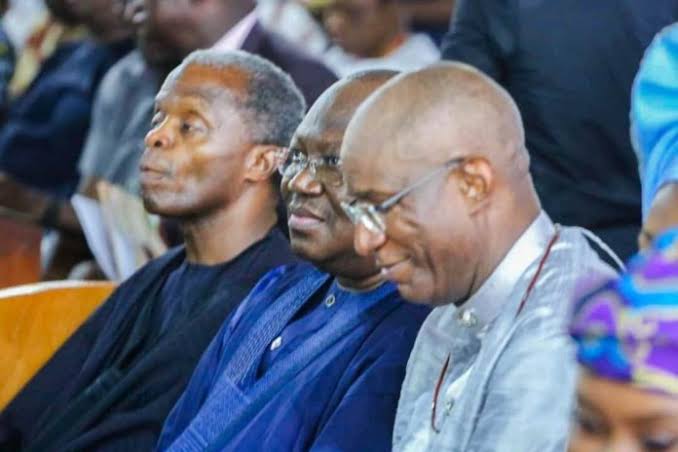Following the hesitation by President Muhammadu Buhari to sign the re-amended version of the Electoral Act into law, the implication is that all elected government functionaries including Vice-President Yemi Osibanjo, Senate President, Dr Ahmed Lawan, Deputy Senate President, Senator Ovie Omo-Agege, all members of the National Assembly, states House of Assembly members, elected council officials may not be eligible to participate in the 2023 general elections either as delegates or aspirants.
While some aspirants believe that they now have a lesser number of delegates to deal with, the wider implication is that if one cannot vote as a delegate in the coming primaries on account of the Electoral Act, he/she is technically not eligible to participate as an aspirant or be voted for in the same election.
Section 84(8) recognises only democratically elected delegates, stating, “A political party that adopts the system of indirect primaries for the choice of its candidate shall clearly outline in its constitution and rules the procedure for the democratic election of delegates to vote at the convention, congress or meeting.”
Statutory delegates, that now stand excluded from participating in the intra-party election as a result of the controversial clause, include elected councillors, local government chairmen and their deputies, party chairmen in local government areas, state and federal lawmakers (current and former), governors and their deputies, President and Vice-President, National Working Committee members, state party chairmen and secretaries, are no longer voters at the primaries.
The Senate and the House of Representatives had last week passed the amendment to the Act to recognise statutory delegates as voters during primaries, congresses and conventions of all the political parties.
With the President’s hesitation to sign the amendment, it means only national delegates elected at the local government congresses will determine the presidential flag bearers of all political parties.
Likewise, only the five delegates elected from each ward for the state congresses will vote to elect governors, senators, House of Representatives and states’ House of Assembly members for the APC. For PDP, it will be the three delegates elected from each ward.
The Peoples Democratic Party (PDP) has directed that only elected party officials and-hocc delegates will vote in the forthcoming primary election of the party, removing former and sitting elected council Chairmen, councillors, serving members of the House of Assembly and others from the delegates list.
Recall that most of those seeking elective offices in the 2023 general election are serving political office holders who may be affected by the yet to be signed Electoral Act (as re-amended).
The implication is that if the elected councillors, former and serving members of state assemblies who have been pencilled down as delegates cannot vote in the coming primaries, it bears no argument that they too cannot be voted for in the primaries.
With just two weeks to the deadline for conduct of all primaries by the political parties and the closure of sales of nomination forms by political parties, many parties may not have candidates for the coming polls or may simply have to improvise.
However, Mr President’s signature could save the day for many and prevent the nation from a needless conundrum.


